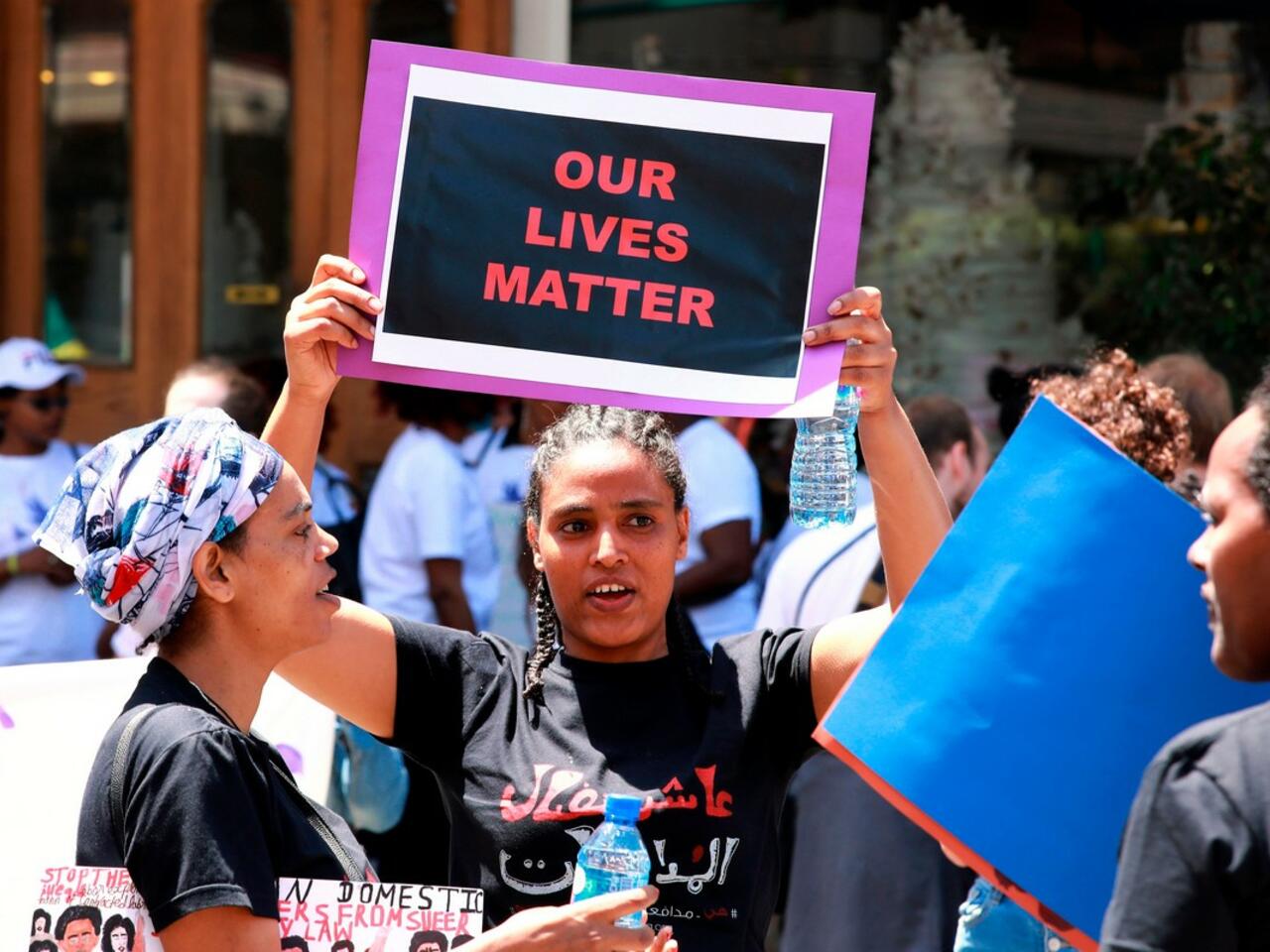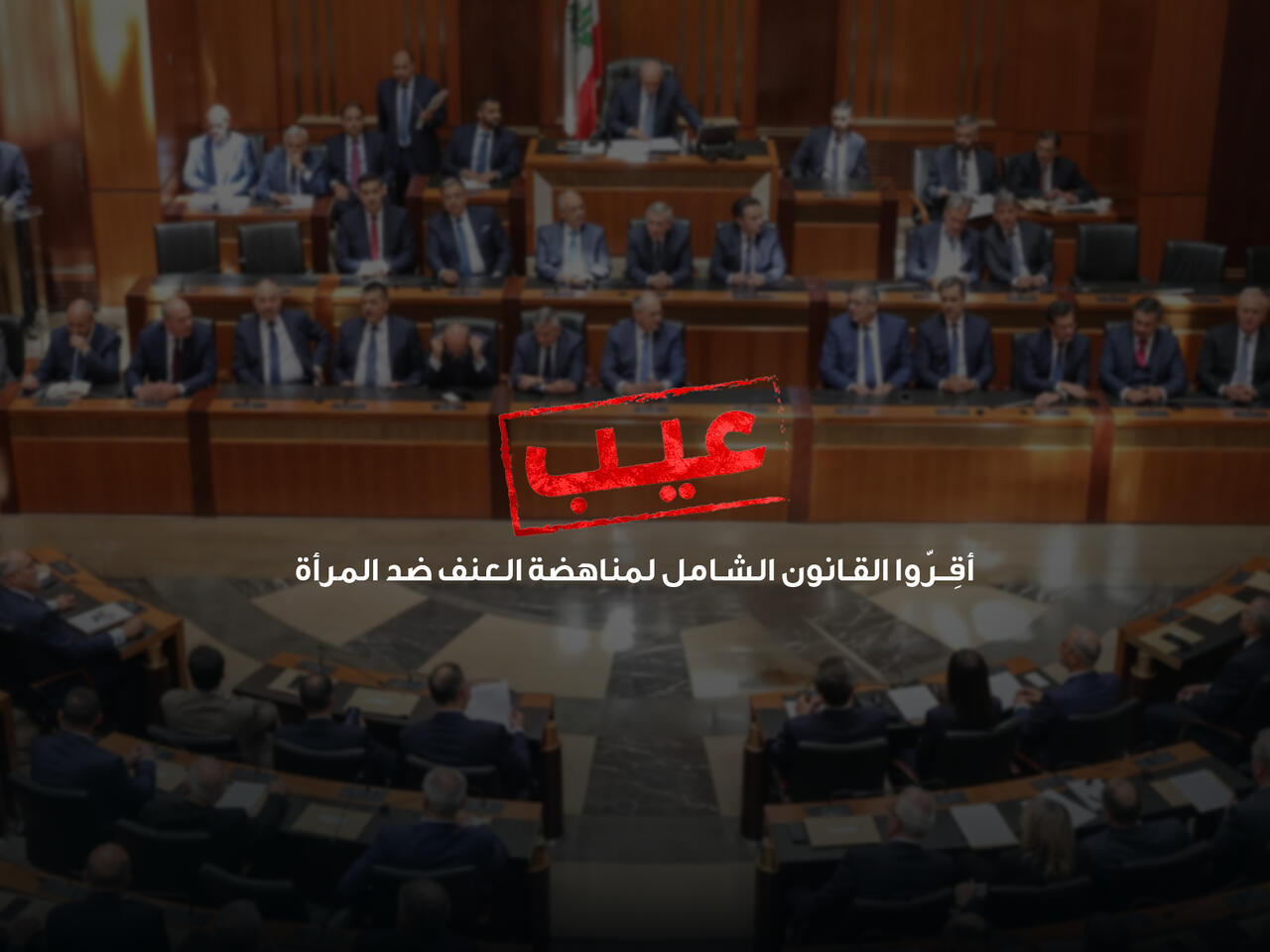The problem with Article 522
The Administration and Justice Commission finished examining a proposal to cancel Article 522, which exempts the offender of the crimes established under Articles 503 to 521 from punishment if a marriage contract is concluded with the victim. The Commission concluded in its last session that this Article shall be abolished while maintaining the effects thereof in Article 505 on sexual intercourse with minors and Article 518 on promising marriage to women (be they adults or minors), which is something worthy of highlighting considering its serious repercussions on women and girls and on the general legal outlook of the Lebanese State.
Article 505 involves the punishment of intercourse with minors, which is considered a crime punishable by the law. However, the last amendment approved by the Administration and Justice Commission places the offender before two choices: Imprisonment or marriage of the victim if she is aged between 15 and 18, while imposing the intervention of a social worker in the cases where marriage is concluded to ensure that the minor is doing well. Here, we ask, if intercourse with the minor is considered a crime as per the law, on what grounds is the offender given the choice of marrying the victim against suspension of the prosecution? And what is the purpose of having a social worker follow-up on the marital relationship if we assume that no harm is done since the contract is a “valid contract” between the two parties?
Another question arises today: By incriminating “intercourse with the minor”, do legislators mean that there is a problem in the sexual relation between minors or in the intercourse between one adult and one minor? The issue is not clear neither in the original text of Article 505 nor in the suggested amendment, which only refers to “intercourse with minors”.
Would the real problem encountered by legislators be the sexual relationship outside marriage? This seems clear as per the latest amendment, and by maintaining the consequences of Article 522 in Article 505 that marrying a minor upon intercourse ends the legal proceedings against the offender. This means that intercourse with minors during marriage shall no longer be considered a crime… How would it be incriminated as long as it is legalized in the civil status laws across confessions which authorize the marriage of children? Here lies the major threat related to maintaining the effects of Article 522 in Article 505, which is to have the Lebanese State recognize the legitimate marriage of minors legalized by the personal status laws of all 18 confessions and consecrate it in a civil law.
This issue brings us back a couple of years ago when Parliament decided to choose the wording “claiming marital rights” -which includes a religious concept that considers sex to be a husband’s right over the wife- in a civil law, and more specifically in the Law on Family Violence enacted in 2014. The expression was introduced to a paragraph that was supposed to criminalize “coerced intercourse”, i.e. marital rape. And when talking of marital rape, did anyone notice how Article 503 survived? Why didn’t the members of the Administration and Justice Commission stop at Article 503 knowing that they have debated the amendment of many articles in Chapter seven, including the famous Article 522, which is the last one? Doesn’t the article stipulating that “whoever, with violence and threat, coerces (a person) other than his (spouse) to sexual intercourse, is punished with hard labor for no less than five years,” be worthy of their attention? It is true that the effects of Article 522 no longer apply to this crime. However, by maintaining unchanged Article 503, and by not abolishing the wording “other than his wife”, legislators have acknowledged again that marital rape is allowed. Some also confirm that there is no rape in marital relationships.
The members of the Commission examined all Articles between 503 and 521 and introduced many amendments. They have even inflicted a more severe sentence on “whoever is disguised as a woman and enters women’s private place…”, however they did not touch Article 503 which discharges husbands from marital rape. They were not alarmed by the fact that the marriage of minors was consecrated in a civil law. Based on these two points, it is clear that the hailed personal status laws of confessions remain the untouchable reference though they too are positive laws. Once again, some deputies discuss violence against women and girls from a patriarchal perspective that does not consider violence to be a crime; they even defend the marriage option, pretending to defend dignity and inflicting on women the consequences of their ideas and deeds. MP Robert Ghanem said that the members took into account the “Lebanese traditions since we still have tribes and different traditions”, which shows perfectly well the patriarchal attitude that is still dominant when discussing women’s causes.





